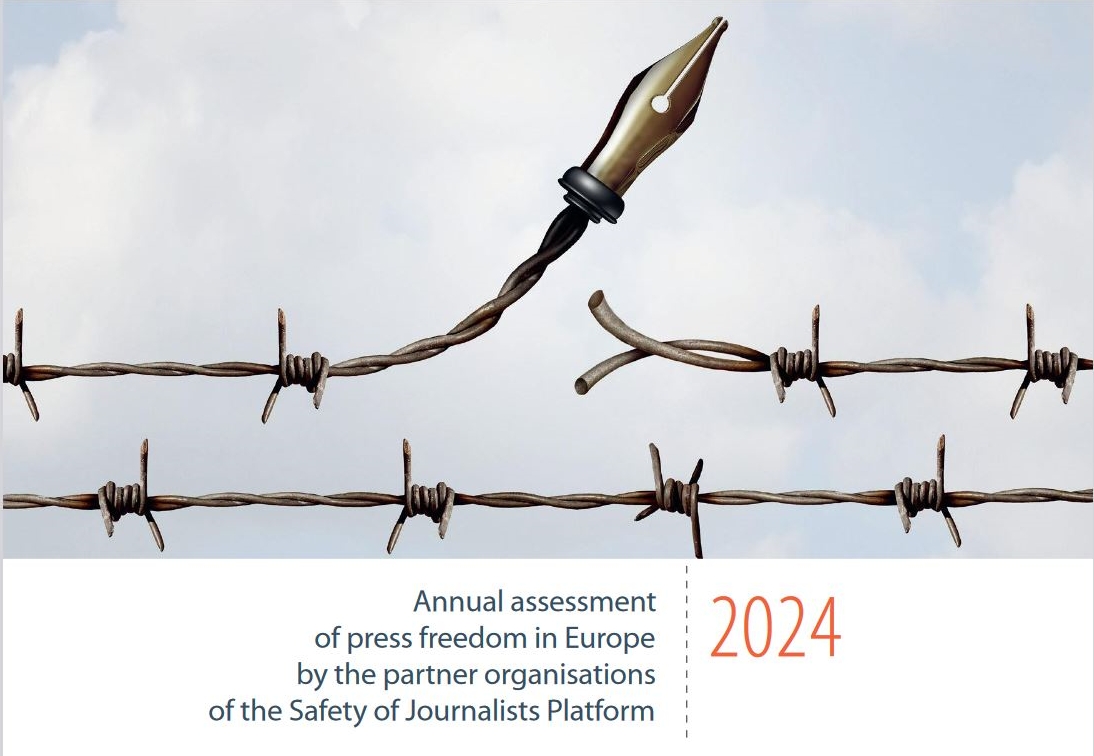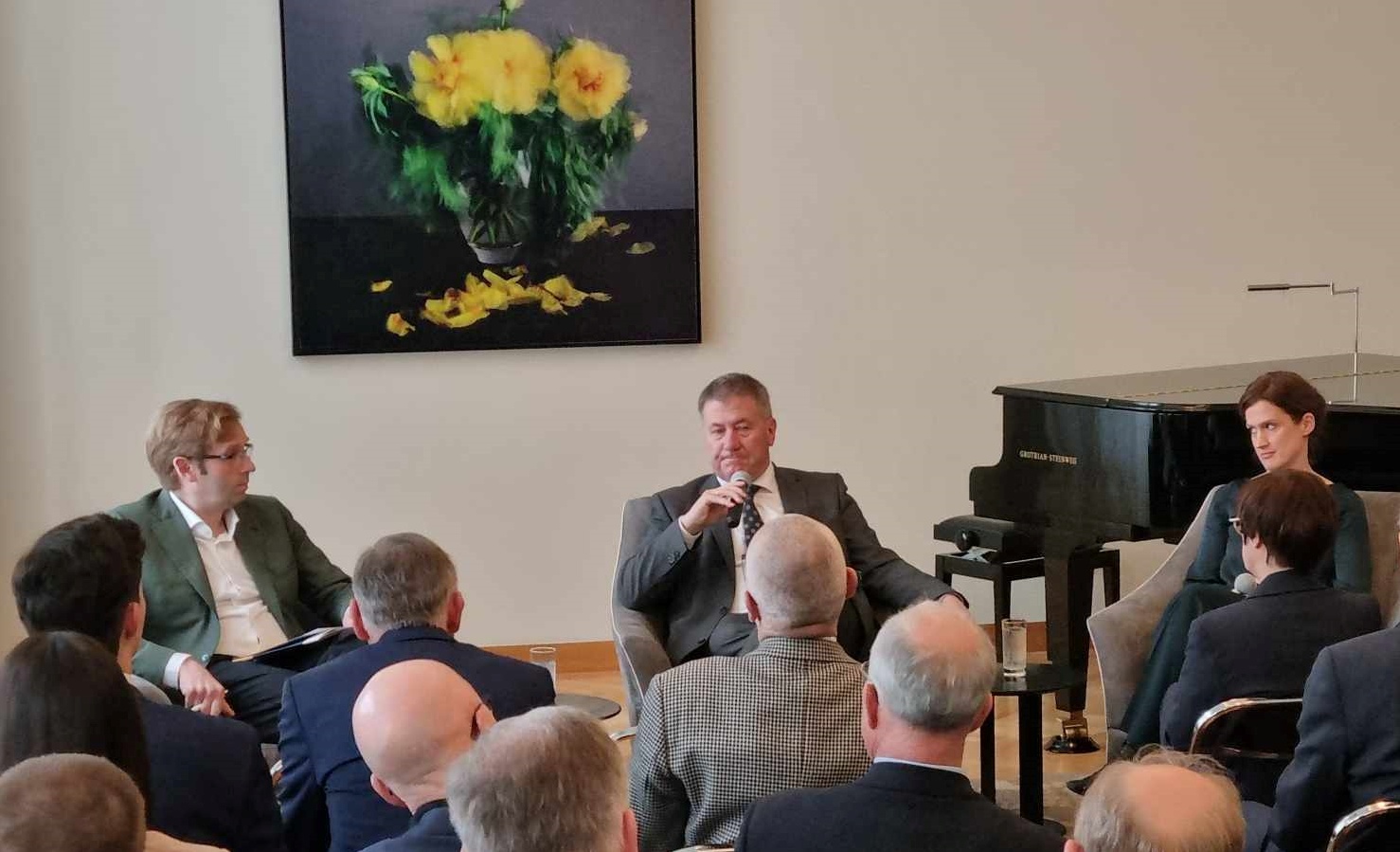
Many of the unfavorable conclusion come from well known left-wing activist journalist.Continue reading

An inspiring debate has taken place at the German Ambassador’s residence in Budapest on Monday afternoon, where journalists, academics, and diplomats had the opportunity to offer their opinion about the state of the Hungarian, as well as German press.
The debate entitled “The role of the media in restive democracies,” was conducted in English between the two panelists, Jennifer Wilton, Editor-in-Chief of Die Welt, and Dr. Zoltán Szalai, Editor-in-Chief of Mandiner and Director General of the Mathias Corvinus Collegium. The discussion was moderated by Gergely Prőhle, Director of the Institute for Strategic Studies of the National University of Public Service (NKE), former Hungarian ambassador to Germany and Switzerland.
In her introductory address, German Ambassador to Hungary Julia Gross emphasized the crucial role that free media plays in our democracies. Yet she also highlighted the fact that these press outlets have to think commercially, because most of them are enterprises, and are hence affected by their economic and corporate environment. In her introduction, she described the media that the panelists represented, Mandiner and Die Welt, as “conservative,” to which the moderator, Gergely Prőhle, had juxtaposed the idea that what is a “conservative media” can be very different in different contexts, and both the context, as well as the term “conservative” are constantly changing.

Photo: Pixabay
Die Welt editor Jennifer Wilton then spoke about Hungary’s image in the German media. In her view, the real problem is not that this image is somehow distorted as some claim, but that there is not much information about Hungary.
Hence, in her view it is not bias, but the lack of information that is an issue waiting for remedy.
In his reaction, Szalai stressed that in Hungary, the image of Germany is traditionally very positive. He spoke about the aspirations of Hungarians after the fall of communism, how they elevated Germany, its freedom, and prosperity to an example where they would aspire to move as a society. After 1989, German Chancellor Helmut Kohl set a strong example of how to create a democratic state.
In Szalai’s view, the great break came during the 2015 migrant crisis, when the Hungarian government had made very different decisions compared to Germany, which went in the opposite direction in dealing with illegal migrants. That was the year when criticism of Hungary in the German media had become increasingly strong. In turn, Hungarian media had also started to view German politics in a more negative light, said the Mandiner editor.
He also added that there are seven times more news items about Hungary in the German media than vice versa, hence it is not the lack of information or interest that characterizes the reporting about Hungary. He recalled a recent study that shows that over 77% of reporting about Hungary in the German media is negative, and only 1% positive. In contrast, he said that only about 13% of reports about the German government were negative in the Hungarian media, and as much as 30% of Hungarian reports about Germany are positive.
In turn, Wilton emphasized that being negative about a certain government does not equal being negative about the entire country. She also called her own publication, Die Welt, “both conservative and liberal,” which makes it unique within the German market. In her view,
as journalists we should stick with certain values and defend them, but this does not make a journalist a propagandist.
She stressed that she would not call any of her German colleagues propagandists, but as far as her own newspaper is concerned, their position is more unambiguous than others.
Wilton also added that it is most often the acting editors-in-chief who determined whether Die Welt was more or less liberal or conservative. Although impartiality is one of the most important values in journalism, one also has to be principled, the German editor said.
Szalai then turned his attention to the question of who does one write for as a journalist: is it the readers, or fellow opinion makers, or other colleagues? In his opinion, there is a tangible problem in journalism in general, when journalists stopped writing for their readers as such, and started publishing click-baits for social media or fellow colleagues.
He explained that the privatization of newspapers after the fall of the Iron Curtain in Hungary had a strong effect on how the local media landscape was shaped. Western companies bought up formerly state-owned media, and they in turn treated them as capitalists, as a commercial venture. Over 90% of the new media was written by journalist inherited from the communist regime. They were the only ones with experience in journalism in the early 90s. Today, however, the media is more diverse than it was in the past. It is very polarized, but there are more opinions present, Szalai added.
92nd! Hungary is placed 92nd on the Freedom of press index.
The Netherlands is 6th. https://t.co/ygk9pD8MiR
— Tim Huijzers – @webbaard@phpc.social (@Dragem) July 7, 2021
The Die Welt editor reacted to Szalai’s remarks about media pluralism in Hungary with a touch of skepticism and irony. In her reaction, Wilton said, “I was getting very excited (to hear) about the diverse media in Hungary because in Germany we have a different information about it.” To Hungary Today‘s question as to what she meant by “different information” and a request to demonstrate an opinion opposite of Dr. Szalai’s, she did not offer any explanation.
Mandiner‘s editor-in-chief then explained that in Hungary, television is the main media, not the written journals and newspapers. The left-leaning RTL commercial channel and the opposition’s ATV news channels are the largest, both among the for-, and anti-government media channels. Left-wing media in Hungary has more air time and viewers. He also pointed out that 60% of all online advertisement money in Hungary goes to U.S. tech giants’ coffers, such as Facebook and Google. The rest of Hungarian media has to share the remaining 40%, which is why the budget of media companies is decreasing, Szalai pointed out.
Featured Image: Hungary Today